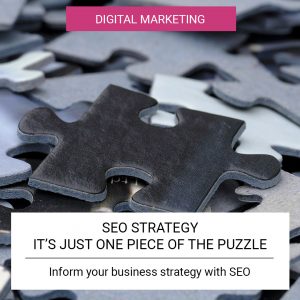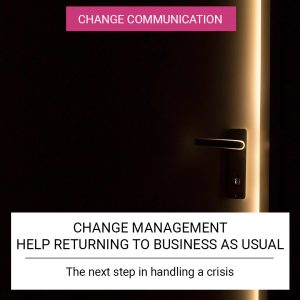
As your online content needs to be found by your target audience, your SEO strategy should inform your communications strategy.
SEO, or Search Engine Optimisation for the uninitiated, is a bit of an enigma. Fundamentally, the point of SEO is to increase the traffic to your website, in both quality and quantity, through organic (unpaid) search engine results. But how do you achieve this, and why should you?
When we refer to SEO, we’re talking about optimising your website to help it appear on a search engine page (eg Google, Yahoo, Bing etc). The goal of search engine optimisation is to improve your organic (non-paid) search engine result, and in reality, your rank (position) too. Its purpose is to increase your website traffic, not only in terms of quantity of users, but the quality of users too.
First things first, you need to understand how search engines work. Search engines ‘crawl’ the Internet for content. Once located, the content gets indexed for relevant search queries, and finally content is ranked in order of relevancy to a search query. So what can you do to improve your ranking position for organic search? As search engines work off of algorithms that are constantly changing and evolving, SEO tactics have to constantly adapt in response to these changes.
Sorry to be the bearer of bad news but, just because you’ve built a website, doesn’t mean you’ll start ranking on search engine pages, like Google, Bing and Yahoo. Netcraft’s January 2019 Web Server Survey identified over one billion websites, so it’s never been more important to make sure your website can be found for the right search queries.
With that in mind, the next piece of bad news for you: a website is never finished. It’s always an ongoing project that will grow and evolve as your business does. To not give your website the due care and attention it needs, is business suicide. Panic not, here comes the good news. There’s plenty you can do to improve your ranking chances. Before you start delving into technical SEO, there are some basics you can do in-house, or via a third party specialist, to ensure you have an SEO-friendly website.
To see what you’re dealing with, it’s worthwhile analysing your domain to check if there’s any issues relating to links not working (both internal and external), site speed and responsiveness. Incorrect links, as well as the type of link can impact your search ranking. Fixing any link errors on your site and using internal link best practices should be top of your list.
By far the biggest impact on your search engine ranking, comes from your site having good quality content. The three elements that influence your site’s content SEO are site structure, keywords and copywriting. If your website’s content management system has an SEO plug-in, use it! It’s a powerful weapon at your disposal. You can set the snippet for your website (what shows up on search pages), set keywords for your content, assign a schema markup and assess your content for readability.
Whether you’re creating SEO content for your site, or assessing your website’s relevancy to your target audience, keyword research matter. A lot. Keyword planner tools can help you create a list of keywords and phrases that are relevant to your target market that can be invaluable to your communication strategy. One of the most simple, yet effective, ways of researching keywords is by utilising the suggestions feature on Google. Start typing key search terms for your organisation and see what suggestions Google provides. These suggestions are powered by Google’s search data findings.
Once you’re happy with the content and structure of your site, you can take your SEO presence to the next level incorporating things like Link Building, Local SEO and Conversion Rate Optimisation (CRO). There is no end to how deep down the SEO rabbit hole you can go. However, starting with the basics will put you in good stead for improving the visibility of your site online, which will complement your digital advertising efforts.
This article was first published in the Suffolk Free Press, Thursday 14 November 2019.

As your online content needs to be found by your target audience, your SEO strategy should inform your communications strategy.

Encouraging the growth and success of your business often involves forecasting, and mapping goals to achieve. Communication objectives can be important for your organisation’s overall business strategy.

With the lockdown restrictions starting to lift, the next step of this crash course in handling a crisis is change management.

Be proactive in lead generation. Create a steady stream of leads to convert into customers for your business using lead magnets.
© 2019-2020 All rights reserved
Knight Media Communications Ltd | Company no. 12064990